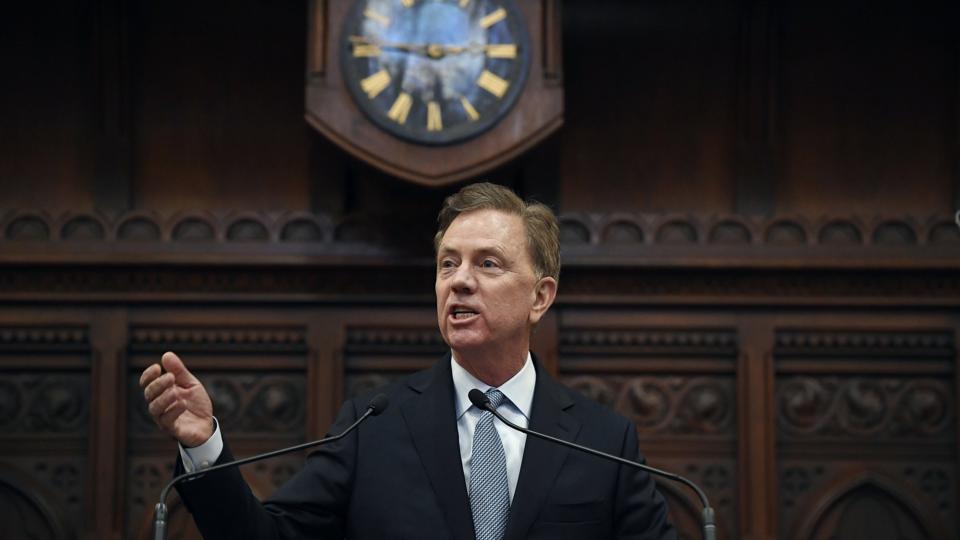Topline
As more states start slashing the $300-per-week enhanced unemployment benefits, New York and North Carolina on Tuesday became the latest states moving on legislation that would authorize one-time "signing bonuses" for unemployed residents who find work—joining a handful of other states considering similar legislation and at least six that have already authorized such payments.

“This is the latest too in our toolbox to maximize our state’s recovery from the coronavirus ... [+]
ASSOCIATED PRESSKey Facts
Still awaiting final approval in the state House, the North Carolina proposal, which passed the state senate with bipartisan approval, would give unemployed residents $1,500 signing bonuses if they accept a job within 30 days of the bill becoming law and $800 within 60 days.
Also on Tuesday, New York lawmakers introduced a bill that would authorize a $1,200 payment to unemployed residents who return to work for at least four weeks, and last week, two Republican Massachusetts state senators proposed a similar bill, calling for $1,200 "sign-on bonuses," payable in three increments spread out over a full year.
Republican-controlled Montana became the first state to authorize a "return-to-work" bonus in early May as a way to replace the $300-per-week enhanced unemployment benefits that many GOP lawmakers claim disincentivize employment, offering $1,200 to then-unemployed individuals who complete four full weeks of paid work.
Following suit later in the month, Republican-controlled New Hampshire and Oklahoma also announced an end to the enhanced federal unemployment benefits while debuting one-time employment bonuses of $1,000 and $1,200, respectively.
Marking the biggest "return-to-work" bonus so far, Arizona rewards residents who are newly employed full-time with a $2,000 payment (after 320 hours of work) and $1,000 to those who obtain part-time employment and work at least 160 hours.
Democratic states have also gotten on board, with Connecticut providing a one-time $1,000 payment to the first 10,000 long-term unemployed people who return to work for at least eight consecutive weeks before the end of this year.
Most recently, Colorado authorized $1,600 payments for unemployed people who transitioned into full-time work in May and $1,200 for those returning this month—with both payments contingent on eight weeks of employment.
Crucial Quote
“We’ve all heard from small businesses and job creators around the state, and they quite simply can’t find workers,” Rep. Ted Budd (R-N.C.) said Tuesday while supporting the bill at the state legislature. "I’m extremely concerned with the backwards incentive that has been created through enhanced federal unemployment benefits," says Budd, who's introduced federal legislation that would grant Americans receiving the benefits a $900 payment after four weeks at a new job.
Key Background
The push to provide newly employed Americans with one-timing signing bonuses comes as a growing number of states announce they’ll drop the federal government's supplemental unemployment benefits program, which provides an extra $300 per week to the jobless. GOP lawmakers have been claiming the additional payments disincentivize the unemployed to look for work, but in a note to clients last week, JPMorgan economists said the early end to the unemployment insurance, which is set to expire in September, looks “tied to politics, not economics.” They argued many of the nearly 40 states that have announced the early reduction (all of which are governed by Republicans) are not showing signs of a tight labor market or strong earnings growth—two factors used to justify the end to enhanced benefits.
Further Reading
At Least 36 States Are Reimposing Work Search Requirements On Unemployment Benefits Recipients (Forbes)
Florida The Latest State Dropping $300-A-Week Federal Unemployment Benefits (Forbes)
Democratic Governors Face Pressure From Republicans To End $300 Weekly Unemployment Benefits (Forbes)
The Link LonkJune 03, 2021 at 03:22AM
https://ift.tt/3g45XJo
Here Are The States Offering 'Return-To-Work' Bonuses As High As $2,000–And Which May Be Next - Forbes
https://ift.tt/2VuKK1x
Work

No comments:
Post a Comment